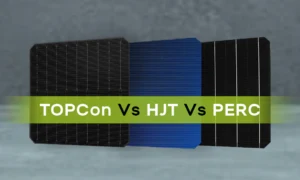Network-Attached Storage, commonly known as NAS, has been a driving force in the evolution of technology in recent years. This powerful storage solution has revolutionized the way businesses and individuals store and access their data, and has played a crucial role in shaping new technological advancements. In this blog post, we will provide you with a comprehensive overview of what is NAS and how it has impacted technology in recent years.
What is NAS?
NAS is a storage device that is directly connected to a computer network, providing data access to other devices connected to the same network. NAS enables users to share files, store data, secure backups, and much more. It plays a significant role in eliminating data silos and facilitating collaborative work, allowing multiple users to access data simultaneously, no matter where they are located globally.
NAS and Cloud Computing
The popularity of cloud computing has skyrocketed in the last decade. Still, NAS remains an integral part of the cloud environment. It can be easily integrated with the cloud, and many cloud services providers use NAS to store their data. NAS is often employed as an on-premise solution in hybrid cloud scenarios, with cloud vendors providing additional elasticity, scalability, and cost savings.
NAS and the Internet of Things (IoT)
The Internet of Things refers to a future where everyday objects connect to the Internet, enabling them to gather and transmit data. This innovation has created an explosion of data, and it needs to be stored, collected, and analyzed. This is where NAS comes in, as it provides a perfect platform for the storage and analysis of IoT data.
NAS in Surveillance and Security
NAS is also an essential component in video surveillance and security systems. It is the ideal solution for storing the vast amounts of data generated by security cameras. As security surveillance systems transition from analog to digital, NAS has proven invaluable for storing and sharing high-quality video footage from a multitude of cameras.
NAS and Virtualization
Virtualization creates a virtual version of an operating system, server, storage device, or network. NAS solutions is an essential component in storage virtualization, which involves pooling physical storage from multiple sources into a single virtual storage device. This allows administrators to allocate storage space to various systems and processes while providing better storage management.
Conclusion
In conclusion, NAS has played an essential role in shaping the future of technology. It has enabled businesses and individuals to store, share and access their data in new ways. Its profound impact can be seen in the cloud computing, IoT, surveillance, and virtualization sectors. The development of NAS has led to the creation of innovative solutions for complex technological issues, and it continues to revolutionize the way we store and access our data today. As technology continues to evolve, NAS is sure to remain an instrumental tool in shaping the future of our connected world.















